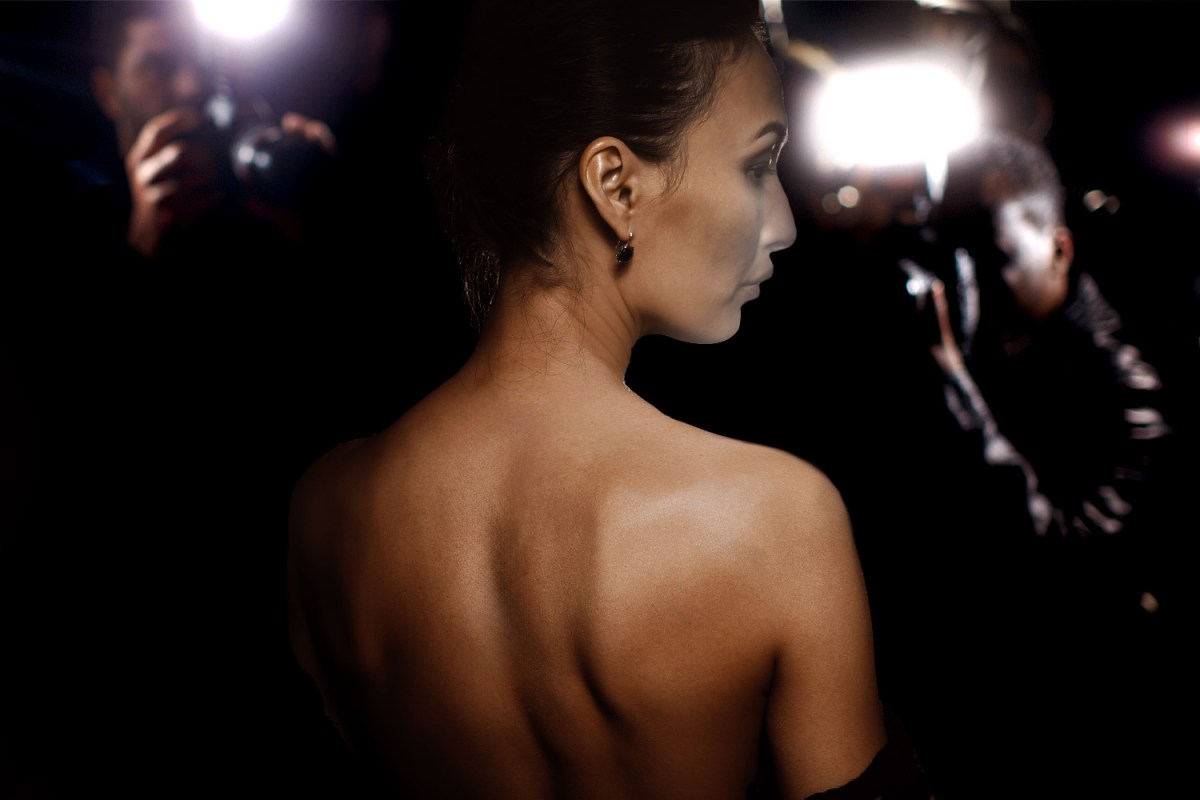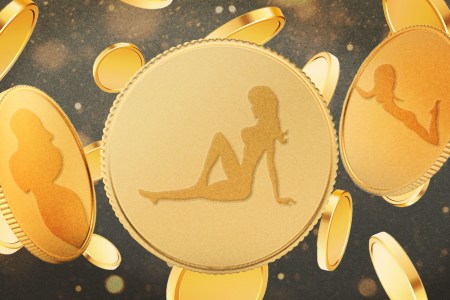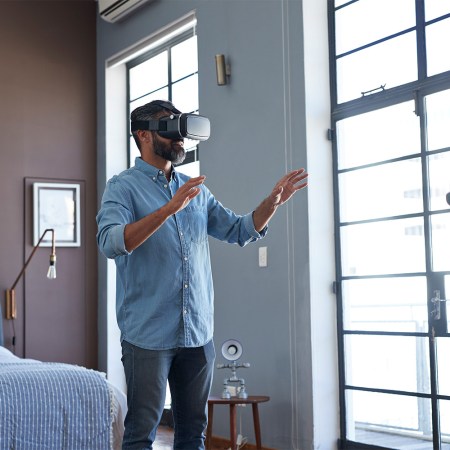There’s one thing I didn’t expect to feel at the end of a screening of a porn movie, and that was — prepare yourself — kind of tearful. Emotional, but in a good way. I was at the premiere for The Wedding, the most expensive production to date from female-owned porn production company Erika Lust Films. At the Phenomena Cinema in Barcelona, the curtains closed on the big screen where a cinema full of strangers had all just watched porn together. The dozens of people who had worked on the production — the performers, the camera and lighting crew, the social media and comms teams, flooded the stage amid applause from the dozens of journalists and hundreds of paying ticket-holders in attendance (the night had sold out). Beside me, Erika’s husband rose to his feet, starting a standing ovation. I never knew porn could be so uplifting. It was even kind of wholesome.
It’s fair to say we went in not knowing what to expect — would watching porn with a bunch of strangers be awkward as hell? It wasn’t. We’d all dressed up. And I mean up: There were bow ties and gowns. Photographers circulated, so did Cava (we were in Barcelona, after all) and canapes. After the screening, we congratulated the performers (who we’d just seen in close up, super-HD, naked on a gigantic screen) and, again, it didn’t feel weird. They’d made a fun film. And we had fun watching it. In a lot of ways, there wasn’t much more to it than that.
“I want to show people that sex can be fun, porn can be fun,” says Erika, who started Lust Films in 2005, and whose TED Talk “It’s Time For Porn To Change” pushed her further into the mainstream in 2015. Porn is often thought of as something shameful. And in mainstream cinema, sex is often shown only as something dark, seedy, destructive. Some mainstream shows like Netflix’s Sex Education are starting to buck this trend, and other female, non-binary and queer-run porn production companies, such as Aorta Films, are bringing more fun and cinematic details into porn, but it’s more a trickle than a tidal wave.
Porn having cinematic releases and being reviewed by the mainstream press didn’t used to be the rarity that it is today. In the 1970s, the heyday of so-called “porno-chic” movies like Deep Throat and Andy Warhol’s Blue Movie enjoyed widespread exposure, playing in mainstream cinemas and being reviewed by the likes of Empire and The New York Times. Admittedly, the legendary movie mag gave Deep Throat a scathing one star review, but you know what they say — there’s no such thing as bad press. It went on to take, allegedly, $600 million at the box office.
The Biggest Takeaway From Netflix’s Pornhub Documentary? Pay for Your Porn.
Sure, free porn is nice, but paying ensures that it’s ethical, consensual and safe
Things look very different today, in part due to tube sites like PornHub, which have transformed the way porn is distributed and consumed. The internet, ironically, hasn’t been a wholly good thing for the adult industry, and especially not for adult performers themselves. The premiere for The Wedding was such a fun and positive experience because it was vividly clear that the performers are respected as people. At the end of the screening they were invited onstage for a Q&A and, just as actors in any indie or Hollywood movie might be, were asked about the experience of making the movie — the highlights, the challenges, what they learned. Sadly, it’s rare to see adult performers treated in this way.
“Tube sites reduce people to their features, to their parts,” says Erika. “People are dehumanized in this way, often using disrespectful language we would never use in real life.” At the risk of sounding like a teenage boy being caught out with a Playboy, films like Erika’s have real stories, and the characters are real characters, with backgrounds and motivations. And, refreshingly, her movies showcase a range of sexualities. Too often, we expect to see straight porn in one place, gay porn in another, porn for women somewhere else, and so on. Here, this was not the case. “I want to create films that help people to empathize with one another’s sexuality,” she says. “Cinema is a powerful tool for understanding and empathizing with people different from yourself.”
Tube sites have made porn seem disposable. And perhaps this contributes to the problematic aspects of porn — the way people are dehumanized, the troubling messages around consent (or lack thereof) that young people can learn from porn, the way porn so often reaffirms heteronormative or even misogynistic messages. If something is free, if it’s disposable, it’s not that important, right? Why put effort into correcting something that’s so expendable? That’s the message we get from tube sites and from the way porn is so often understood and talked about broadly.
If porn were in more cinemas, with glitzy premiere events and widespread coverage, or if real sex were represented less squeamishly in mainstream film and TV, perhaps this narrative would start to shift. By hiding sex in the shadows, we discourage ourselves from looking at it closely and critically. It’s time porn got its spotlight.
Whether you’re looking to get into shape, or just get out of a funk, The Charge has got you covered. Sign up for our new wellness newsletter today.
























